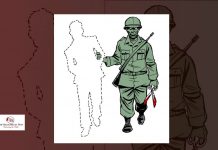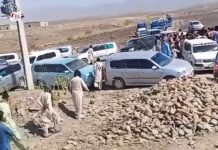Election 2019 and The Biggest Democracy
Writer: Nadir Baloch
This year, in April, Indian people will once again cast their vote for democracy and elect a democratic prime minister. India is enjoying the fruits of democracy from the very first day of freedom. The democratic and parliamentary politics were first introduced in India during the British rule in the country.
United Indian was ruled by the British for more almost a hundred years. Congress was the first popular front in Indian pre-freedom era and it was led by one of the most popular men in the history of the world Mr Gandhi. During the British Raj, the British Government used democracy as a division tool to divide India into two Parts by making the conspiracy of the Indian Muslim League. This religion-based party was made in 1906 on the basis of religious ideology spreading hate and division between Indian people.
Furthermore, it became the darkest chapter of Indian history in the shape of dividing India neglecting its historical and geographical boundaries. Many people believe that the partition was the first brick laid when South Asia was poisoned with religious extremism. And that crop is still cultivating in the region. The division of united India was not only disturbing for the people of India but it is still poisoning the friendly nations in the region(Afghans, Baloch, Persians). Almost it’s a continuous threat for the people in the shape of an atomic war and religious jihad used by the religious state as a strategic tool.
However, the Question here arises that is India safe in such a situation? where religious hate is still used to destabilize the largest democracy of the world? The country surrounded by an imperialist and expansionist China is always there for India. They have influence in many countries from India’s sphere like Sri Lanka and Myanmar, now the CPEC and one road one belt projects are nothing but are the worst examples of imperialism in the 21st century. India can’t be safe and secure with the boundaries of the hatred Islamic regime of Pakistan, cannot enjoy the fruits of democracy until and unless the region is suffering from post-colonialism.
In present conditions, it’s in a continuous state of war handling the 2nd largest population and trying to become a welfare state for its people still, Indian democracy is to go further more and would have to realize the hurdles in the development and safety of its territory. Pakistan is a serious threat not only for India but for the whole. Many Countries know this officially or unofficially. Cross-border firing, and being the hub of terrorism are the ways they hurt India several times.
But the upcoming problem is more serious. Hafiz Saeed head of Jamiat udawa and Shafiq mental Head of Lashkar e Jangvi al Alami in Balochistan, like mindset, are still enjoying Pakistan’s legacy. If by any chance they got the opportunity to reach the nukes then that day it would be disastrous for the whole world. A terrorist state with Nuclear capability is never going to work as a neighbouring country. The radical form of Islam is a threat to all nations of the world. Pakistan is one of the financers for it and continuously promoting the ideology which inspires Terrorism.
It’s shocking that Indian foreign policy is not a key issue among the issues in the Indian elections, a new government will have to manage India’s difficult relations with China, Pakistan, and South Asian neighbours. Depending on whether the next government will be formed by BJP or Congress but do Indian political parties give a clear foreign policy to the public in this coming elections or it will remain shaded.
In 2016 Mr Narinder Modi the current PM of India pointed out from the historical site of Lal Killa about the gross human rights violations and atrocities in Balochistan by Pakistan and hinted to play his countries role to help end long-sufferings and genocide of a secular Baloch nation. It was assumed to be a turning point in the history of India after successful Bangladesh plans of late Ex Indian prime minister Indra Gandhi whose brave and courageous stand on the genocide of Bengalis in 1970 is still appreciated in the bright chapters of Indian diplomacy and as a caring nation for human rights.
Later on, Mr Modi’s commitment to the Baloch nation from Lal Killa in India was followed by Miss Sushma Shivraj, the foreign minister of India in a speech at United Nations General assembly in which she highlighted the burning issue of genocide facing by people of Balochistan with the hands of state terrorism and removed the mask from the face of Pakistan in front of civilized nations. this gave hope to the well-wishers, human rights activists and people of Balochistan.
The recent elections 2018 in Pakistan are proof of military intervention in the democratic process in the country selecting Imran Khan as PM who is well-known by everyone that he is a puppet none other than a civil dress military man and a fundamentalist jihadist funding Madrisa Haqania of Haqanni and sons. Pakistan has become a religious state from its very beginning, continues with military dictatorships with the ideology of global jihad is a regular threat for the secular nation like Baloch, Sindhi, Pashtoon, and Mohajir. These are facing state brutality for decades. It’s the high responsibility of the largest democracy of the world and as one of the great powers in the region to use its diplomatic channels, to raise voice against the human rights violations and atrocities by Pakistani forces.
Current political policies to the external and interior issues of the country should be parallel and in a single dimension. India’s elections are the largest event of its kind in the history of democracy, with almost 100 million people eligible to vote within a country. At most the 6th person in world population is an Indian and yet their role in Foreign policy does not figure among the key issues on which the election is being fought. Indians have to become increasingly conscious of the impact of chines imperialism and state-sponsored terrorism. They have to realize their responsibility towards the goal of security, prosperity and strategic developments in the region.






























